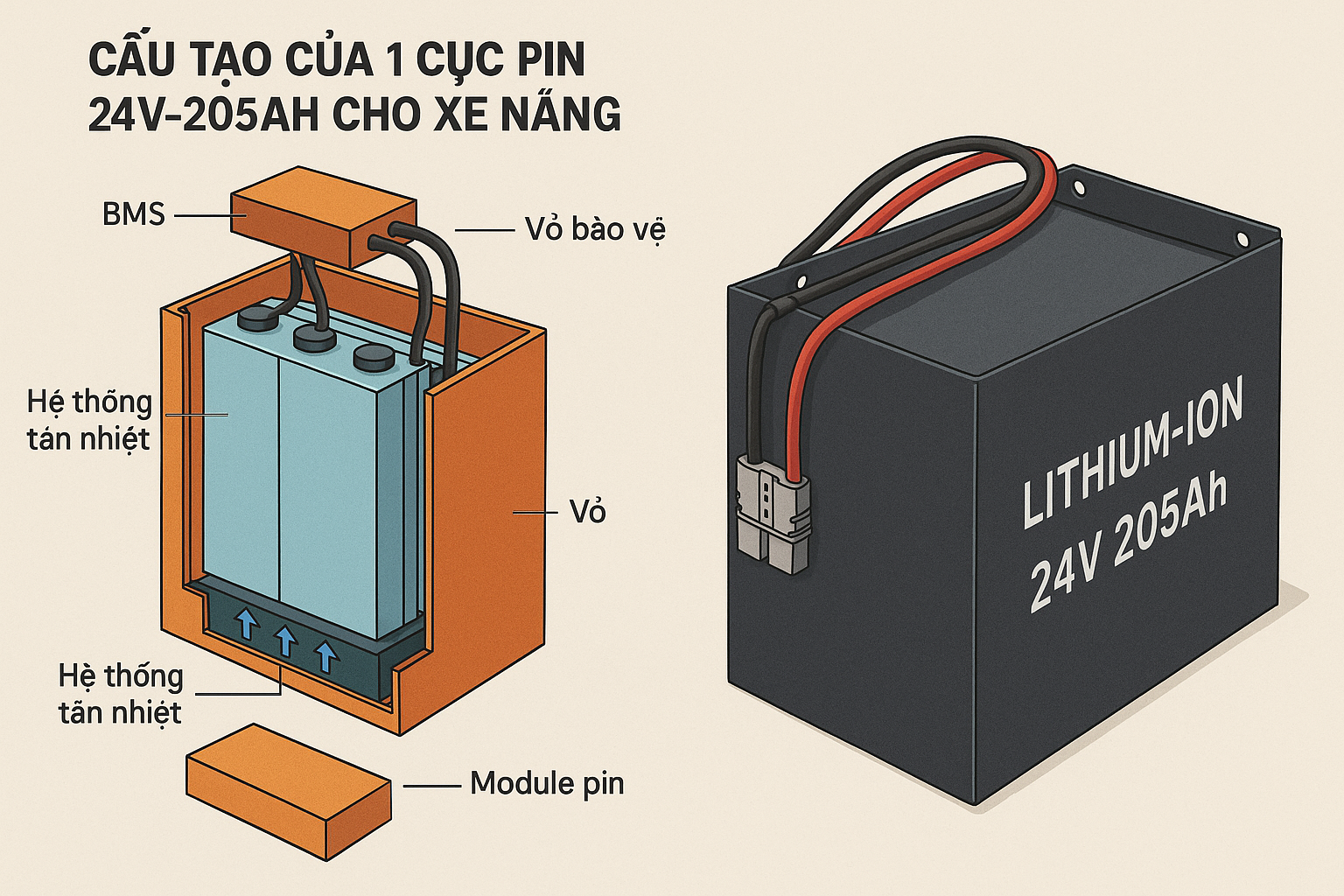STRUCTURE OF A 24V-205AH BATTERY FOR FORKLIFTS
A 24V-205Ah battery for forklifts (especially electric forklifts) is typically either a lithium battery or a lead-acid battery, depending on the technology. Each type has a different structure, but to provide the most accurate answer, here’s the basic construction:
-
With Lithium Battery (LiFePO₄ or NMC)
Main components of a 24V-205Ah battery pack:
-
Battery cells:
A single lithium cell has a nominal voltage of about 3.2V (LiFePO₄) or 3.7V (NMC).
To create 24V, multiple cells are connected in series:-
Example with LiFePO₄: 24V/3.2V ≈ 8 cells (actually 8S = 25.6V).
-
If using NMC: about 7S (7 × 3.7V = 25.9V).
Capacity of 205Ah is achieved by connecting multiple parallel branches of cells.
-
-
Battery modules:
Small cells are grouped into modules for easier management and maintenance. -
BMS (Battery Management System):
Manages the battery: balances cells, and protects against overcharge, overdischarge, overcurrent, and overheating. -
Protective casing:
Made of durable metal, resistant to vibration, impact, water, and oil (rated IP54–IP67 depending on model). -
Cooling system:
Some packs have fans, thermal gel, or ventilation slots to ensure stable operation. -
Cables and connectors:
High-power cables (often Anderson, REMA standard) and charging ports.
-
With Lead-Acid Battery (Flooded/AGM/Gel)
Construction of a 24V-205Ah battery pack:
-
Individual cells:
Each cell provides 2V (single cell) or 6V/12V (pre-assembled types).
Typically 12 × 2V cells are connected in series to achieve 24V. -
Lead plates:
Positive and negative plates made from lead alloy coated with active material (e.g., lead oxide). -
Electrolyte solution:
Diluted sulfuric acid (H₂SO₄).
For AGM/Gel types: the solution is absorbed into fiberglass mats or transformed into gel. -
Battery casing:
Made of acid-resistant, impact-resistant ABS or PP plastic. -
Gas release system:
One-way gas release valves (for AGM/Gel types). -
Cables and connectors:
Similar to lithium batteries, industrial-grade connectors are used.
Quick comparison:
| Factor | Lithium Battery | Lead-Acid Battery |
|---|---|---|
| Weight | 40–50% lighter | Heavier |
| Lifespan | 3000–5000 cycles | 1000–1500 cycles |
| Maintenance | No water refilling needed | Requires water maintenance (if flooded) |
| Investment cost | Higher | Lower |
| Safety | Requires BMS for protection | Less risk of fire/explosion |



